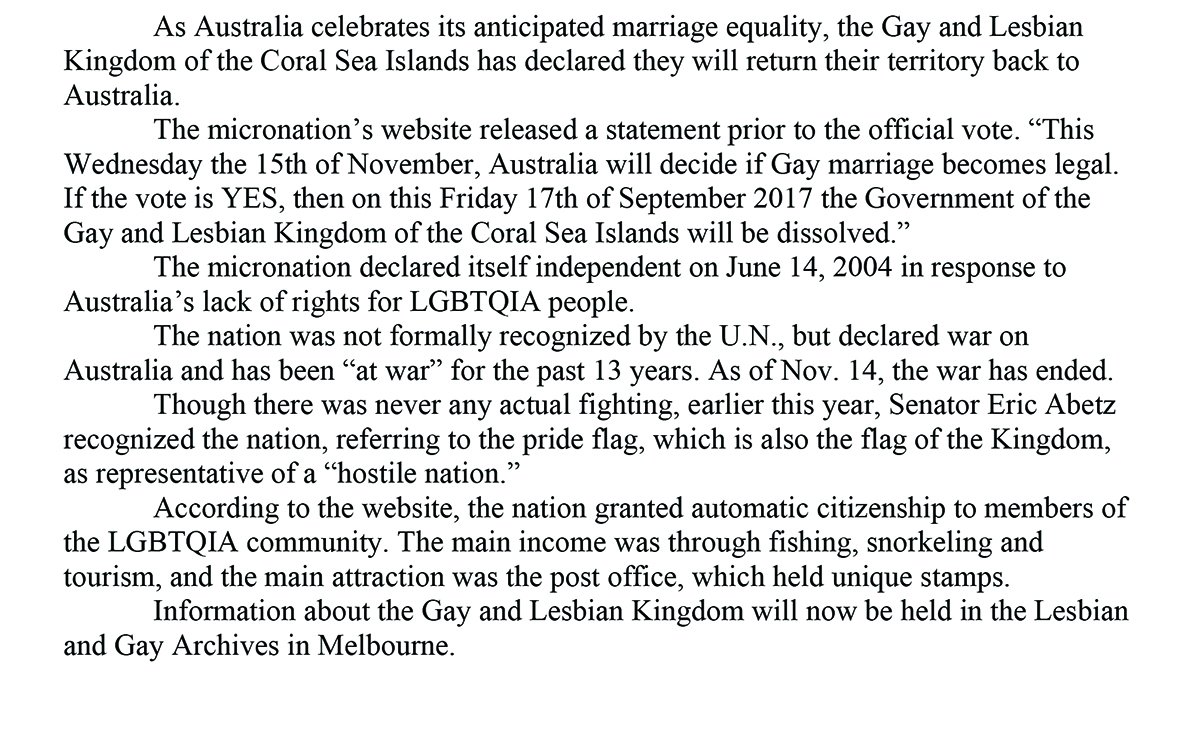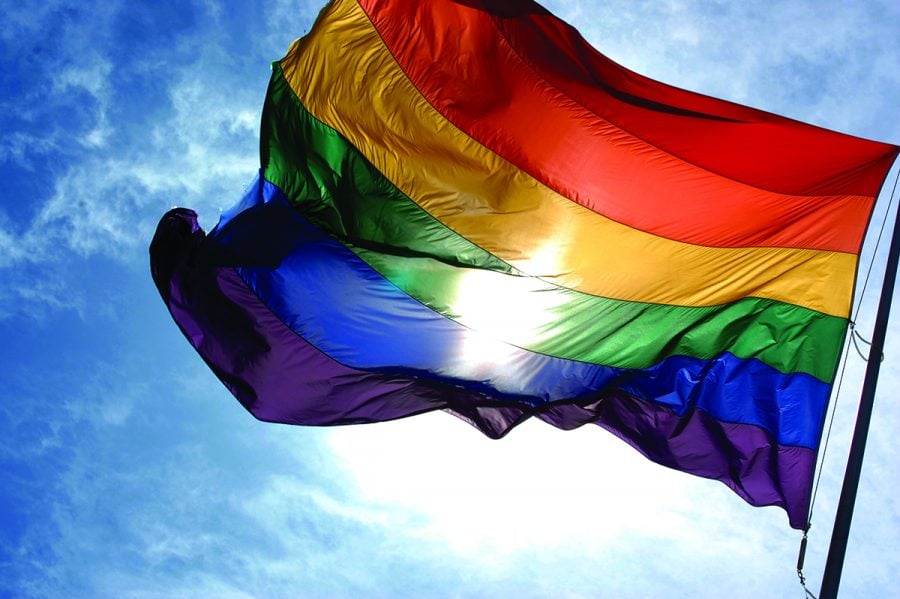Australia Legalizes Gay Marriage
On Tuesday, Nov. 14, the majority of Australian citizens voted in favor of marriage equality and LGBTQIA rights.
Over the past few months, Australia has had a postal vote to decide whether or not to pass a bill on marriage equality. The move was largely controversial, as many believed it was a form of stalling the vote.
The postal survey, while not a legally binding vote for the government, was a voluntary vote that intended to show representatives the people’s opinions.
In a press release on Aug. 22, the Australian Bureau of Statistics said, “At the direction of the Treasurer, the ABS will collect statistical information from all Australians on the Commonwealth Electoral Roll on whether the law should be changed to allow same-sex couples to marry.”
Though voting was not compulsory, as it usually is in Australia, almost 80 percent of Australians voted. According to the ABS, 61.8 percent voted yes for marriage equality, and 38.4 percent voted no.
Larissa Barritt, a 22-year-old living in Canberra, the capital of Australia, felt the postal survey was unnecessary for legislation.
“There have already been numerous non-governmental polls showing support of gay marriage. To do this, they have opened the door to some very hurtful dialogue,” Barritt said in an online interview. “There has been aggression and violence from both sides of the debate.”
Darian Turner, a 20-year-old from Hobart, Tasmania, also believes that the survey was unnecessary.
“The postal vote itself set a new precedence in incompetence and should be remembered as a waste of time and money, not as a precursor to equality in our country,” Turner said.
The process Australia has had for marriage equality functions differently from the 2015 U.S. Supreme Court ruling. The postal survey vote leads into a legislative debate that does not necessarily guarantee representatives will vote as their constituents voted.
Spencer File, a Guilford sophomore from Tasmania, spoke on the similarities and differences between the two nations’ processes in ensuring more LGBTQIA rights.
“Here in the States, DOMA (Defense of Marriage Act) was overturned in one swift move, where in Australia … it was legal in the ACT (Australian Capital Territory) for one day, then it wasn’t again,” File said. “The government, for some reason, is being very hesitant on the issue.”
Debates are expected to start Wednesday, Nov. 15 and continue until December. The Senate will debate Senator Dean Smith’s bill, which proposes marriage equality. Australian Prime Minister Malcolm Turnbull hopes to have the bill passed by Christmas of this year.
“I’m very confident that we will get it done before Christmas,” said Turnbull after the vote.
In The Sydney Morning Herald, Christopher Pyne, representative for the seat of Sturt, said, “It’s now the job of the Parliament to faithfully implement it by the end of the year, and that’s exactly what we intend to do.”
With the support of the formal postal survey vote, Australia will likely now pass official legislation for marriage equality.










